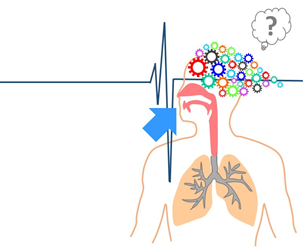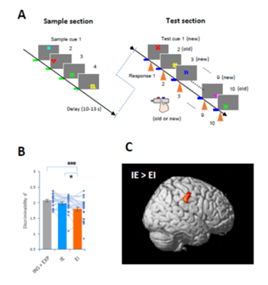Breathing control improves task performance and reduces stress
Information updated: July 31, 2023
- Seeds Information
- Researcher Information
- What do you expect from collaboration with companies?
- Contact for this research
Seeds Information
keyword
Breathing, cognitive function, stress reduction, autonomic nervous system
Field
Cognitive neuroscience, functional brain imaging, Physiology
Overview
In recent years, breathing techniques using yoga, zazen, and meditation techniques have been known to have a stress-reducing effect, including on stress-related mental illnesses, and these effects have attracted widespread attention. Respiratory factors at that time act not only on the body but also on the brain, but little is known, particularly about the effects of respiratory factors on brain network activity and how they ultimately produce a stress-reducing effect. We have already partially clarified the effects of such respiratory factors on the cognitive neural basis. Based on this, we are working on research to specify brain network activity that leads to improved performance in tasks involving concentration and attention, as well as stress-reducing effects.
What's new?
Clarification of the effects of respiratory factors on the neural basis of cognition
What are its advantages over other studies?
Sensing and analysis by simultaneously monitoring local brain activity, electroencephalograms, autonomic nerve activity (RSA amplitude), and changes in pupil diameter
What problem does it help solve?
Analysis of respiratory factors may provide scientific evidence for improving task performance and reducing stress.
Possibility of other applications and developments
In the future, there is a possibility that this method will be developed and widely applied as a new and more effective method for improving memory, concentration, and attention, as well as for reducing stress.
Related Patents
―
Related papers
- Nakamura NH, Furue H, Kobayashi K, Oku Y. (2023) Hippocampal ensemble dynamics and memory performance are modulated by respiration during encoding. Nature Communications. 14:4391.
- Nakamura NH, Fukunaga M, Yamamoto T, Sadato N, Oku Y. (2022) Respiration-timing-dependent changes in activation of neural substrates during cognitive processes. Cerebral Cortex Communications. 3:tgac038.
- Nakamura NH, Fukunaga M, Oku Y (2019) Respiratory fluctuations in pupil diameter are not maintained during cognitive tasks. Respiratory Physiology & Neurobiology. 265:68-75.
- Nakamura NH, Fukunaga M, Oku Y (2018) Respiratory modulation of cognitive performance during the retrieval process. PLoS ONE. 13:e0204021.
Researcher Information
| full name | Nozomi Nakamura |
|---|---|
| Affiliation | Department Physiology and Biofunctions School of Medicine |
| Specialization | Cognitive neuroscience, functional brain imaging, Physiology |
| Collaborative Researcher | Yoshitaka Okuhisa |
| Related links | Researcher Homepage |
What do you expect from collaboration with companies?
- Based on respiratory factors that improve task performance and produce stress reduction effects, we will develop more effective performance-improving and stress-reducing training methods by simultaneously monitoring related changes in local brain activity, electroencephalograms, autonomic nerve activity (RSA amplitude), and pupil diameter.
- Develop equipment to support the above training methods (such as simultaneous monitoring of each factor).
Contact for this research
兵庫医科大学 大学事務部 研究推進課
E-mail: chizai@hyo-med.ac.jp
Tel: 0798-45-6488

 Research Seeds Collection
Research Seeds Collection

